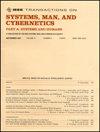加权平均算子下共识建立的对偶模型与收益分配
IEEE Transactions on Systems Man and Cybernetics Part A-Systems and Humans
Pub Date : 2021-11-01
DOI:10.1109/tsmc.2020.2966015
引用次数: 3
摘要
最近的研究从主持人的角度考察了最小成本共识模型。然而,目前旨在获得最大回报的双重模型仅限于特殊情况。另一个问题是对个人的回报分配。考虑到这一点,本文提出了两种一般的双重共识模型,第一个是最小成本共识模型,第二个是允许不同的个体具有不同的容忍水平。在这两种模型中,个人意见和群体意见都使用加权平均算子进行关联。为了理解这些模型的经济意义,给出了一些性质,如弱对偶性、最优性和强对偶性。证明了个体意见、单位成本和单位收益之间的关系,解决了核心收益分配问题。结果发现,在这两种情况下,调解人需要向某一特定个人支付的费用正好等于该个人应得的回报。用数值案例研究来说明所提出的模型,仿真结果为这些优化共识模型的实际应用提供了见解。本文章由计算机程序翻译,如有差异,请以英文原文为准。
Dual Models and Return Allocations for Consensus Building Under Weighted Average Operators
Recent studies have examined minimum cost consensus models from the moderator’s perspective. However, current dual models aimed at deriving a maximum return have been limited to special cases. A further problem has been the return allocation to the individuals. With this in mind, this article presents two general dual consensus models, the first of which is a minimum cost consensus model, and the second of which allows the different individuals to have different tolerance levels. In both models the individual opinions and the group opinion are connected using a weighted average operator. To understand the economic significance of these models, some properties, such as the weak duality property, the optimality property, and the strong duality property are given. The relationships between the individual opinions, the unit costs, and the unit returns are also proven, and the core return allocation problem is addressed. It was found that in both cases, the costs the moderator needed to pay to a given individual were precisely equal to the returns the individual deserved. Numerical case studies were used to illustrate the proposed models, with the simulation results providing insights into the practical use of these optimization consensus models.
求助全文
通过发布文献求助,成功后即可免费获取论文全文。
去求助
来源期刊
自引率
0.00%
发文量
1
审稿时长
6.0 months
期刊介绍:
The scope of the IEEE Transactions on Systems, Man, and Cybernetics: Systems includes the fields of systems engineering. It includes issue formulation, analysis and modeling, decision making, and issue interpretation for any of the systems engineering lifecycle phases associated with the definition, development, and deployment of large systems. In addition, it includes systems management, systems engineering processes, and a variety of systems engineering methods such as optimization, modeling and simulation.

 求助内容:
求助内容: 应助结果提醒方式:
应助结果提醒方式:


